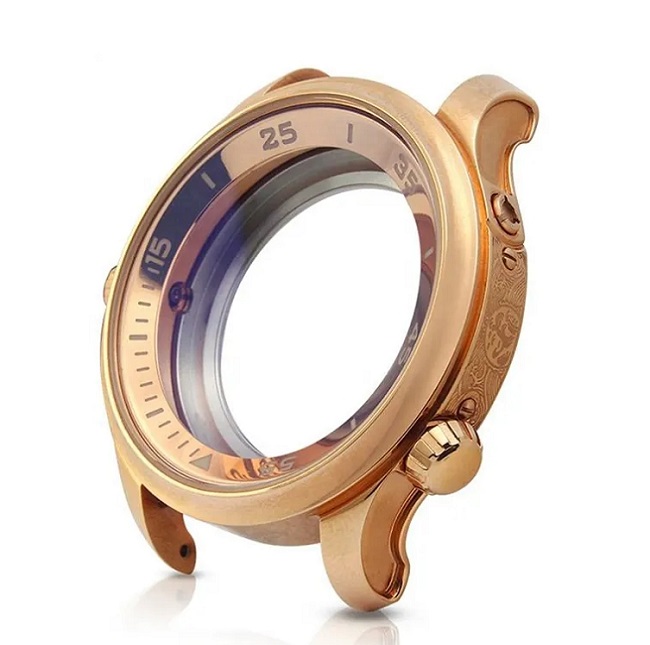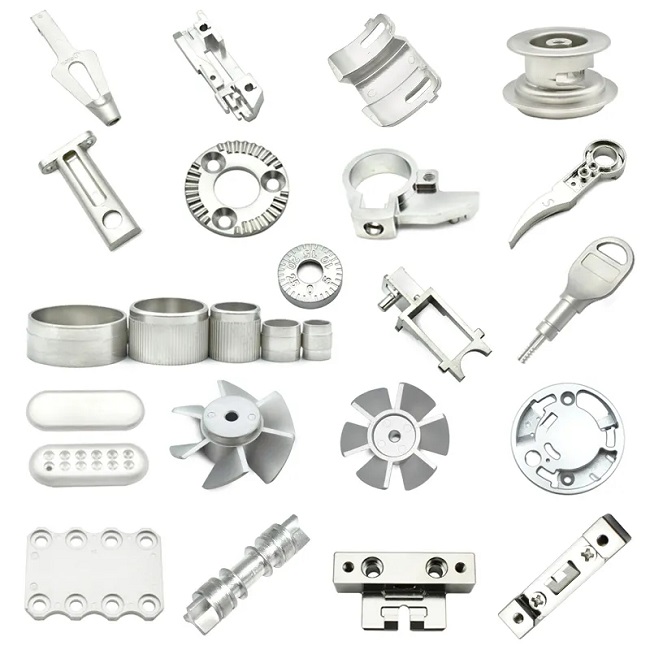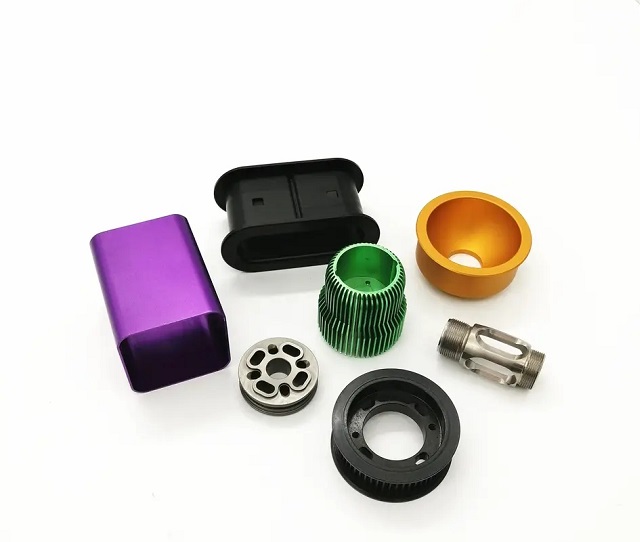Precision Metal Parts: The Unsung Heroes of Engineering
Precision metal parts, though often inconspicuous in daily life, play an indispensable role in the field of engineering. Whether in aerospace, medical, electronics, or automotive industries, precision metal parts are the quiet giants that have a huge impact. In this article, we will delve deep into the importance of precision metal parts, the manufacturing processes involved, and their extensive applications in various fields.

The Value of Precision Metal Parts
Precision metal parts are small yet complex components meticulously designed to meet the highest standards of accuracy and specifications. They are vital elements in various industries, as they serve as critical components in products. Even the slightest deviation can result in a product malfunction, emphasizing the crucial role that precision metal parts play in engineering.
Manufacturing Precision Metal Parts
Manufacturing precision metal parts is both an art and a science. It involves the use of advanced technology, cutting-edge materials, and skilled craftsmanship. Various techniques such as CNC machining and electrical discharge machining (EDM) are employed in the manufacturing process. The process requires experienced technical experts who are committed to achieving excellence.
Innovative Manufacturing Techniques
In recent years, innovative manufacturing techniques have emerged, expanding the possibilities for precision metal parts production. Metal Injection Molding (MIM) is a revolutionary manufacturing method that combines principles from plastic injection molding and powder metallurgy. The advantages of MIM include:
- Complex Geometries: MIM allows for the creation of precision metal parts with intricate shapes that may be challenging or costly to produce using traditional methods.
- High Precision: The process ensures exceptional dimensional accuracy, meeting strict tolerance requirements.
- Material Versatility: MIM can be applied to a wide range of metal materials, from stainless steel to titanium.
- Cost Efficiency: It often proves to be a cost-effective solution for intricate parts that demand high precision.

Applications Across Various Industries
PRECISION METAL COMPONENTS find applications in numerous industries:
- Aerospace: Critical components in aircraft and spacecraft require precision and reliability.
- Medical: From surgical instruments to implants, precision is a matter of life and health.
- Electronics: Precision metal parts underpin the functionality of electronics, from connectors to microprocessors.
- Automotive: Engines and safety systems rely on precision components.
- Consumer Goods: Precision metal components enhance the reliability and aesthetics of products like high-end watches and jewelry.
Characteristics of Precision Metal Parts
When it comes to the manufacturing of precision metal parts, precision is an indispensable key factor. Precision metal parts are vital components in various industries, ranging from aerospace to medical equipment manufacturing, and they require highly accurate components to ensure system reliability and performance.
- Material Selection: The first consideration in manufacturing precision metal parts is the selection of suitable metal materials. Different applications require different materials, such as stainless steel, aluminum, titanium, and more. Mechanical properties and corrosion resistance of materials are critical factors.
- Dimension and Geometric Features: Precision metal parts must possess precise dimensions and geometric features, such as parallelism, roundness, and cylindricity. These characteristics must be carefully considered during design and production to ensure interchangeability and performance.
- Surface Quality: Surface finish, smoothness, and roughness play a crucial role in the performance and functionality of precision metal parts. Attention must be paid not only to the machining processes but also to the selection of appropriate surface treatment methods, such as polishing or plating, to ensure perfect surface conditions.
Precision Manufacturing Processes
- Machining Processes: Precision metal parts are typically manufactured using machining processes like CNC milling, drilling, and turning. These processes require highly precise tools and machinery to ensure that components meet specified standards.
- Forming and Molding Techniques: Some complex-shaped metal parts may require processes like die casting, injection molding, or forging for shaping. These techniques can achieve intricate geometric shapes but require strict process control.
- Heat Treatment and Quenching: Heat treatment and quenching are used to improve the hardness and stability of metal parts. These processes are particularly critical for some key applications, such as aircraft engine components.
Measurement and Quality Control
- Measurement Equipment: Precision metal parts are typically measured using high-precision equipment such as coordinate measuring machines, microscopes, and profile gauges. These devices can detect even the slightest deviations in dimensions and geometric features.
- Quality Control Processes: The implementation of stringent quality control processes is essential to ensure that each metal part meets the specified standards. From material inspections to final product verification, each step must undergo meticulous scrutiny.
- Data Analysis: Data analysis and statistical methods are used to detect and correct deviations during the manufacturing process. This helps optimize production processes, improve efficiency, and ensure consistency.
Surface Treatment Methods
The surface treatment of precision metal parts is a crucial step in ensuring their performance and longevity. This treatment not only improves the appearance of components but also enhances their resistance to corrosion, wear, and lubricity.
- Polishing: Polishing is a method that involves the removal of surface roughness from metal parts, resulting in a smooth, mirror-like finish. It not only enhances the appearance but also reduces the likelihood of corrosion, thus increasing the durability of the metal parts. Polishing can be achieved through different abrasive materials and mechanical processes to meet specific surface quality requirements.
- Plating: Plating is a process where a metal coating is applied to the surface of a metal part to enhance its performance. Coatings may include chrome plating, nickel plating, gold plating, silver plating, and others, depending on the application requirements. Plating not only provides corrosion resistance but also improves conductivity and aesthetics.
- Coating: Coating technology involves applying different types of coatings to the metal surface. This can include paint, powder coating, adhesive coating, and more, aimed at improving corrosion resistance, wear resistance, and appearance. Coating can also be used for color coding and identification.
- Nitriding: Nitriding is a heat treatment process that introduces nitrogen into the metal surface to increase its hardness and wear resistance. This surface treatment method is particularly suitable for tools, bearings, and mechanical components, significantly improving their lifespan and performance.
- Chemical Treatments: Chemical treatments include acid cleaning, phosphating, oxidation, and chemical etching, among other methods. These processes are used to enhance the corrosion resistance and adhesion of the metal surface by removing oxides and impurities, thereby improving the metal’s quality.

Conclusion
Precision metal parts may go unnoticed in everyday life, but their significance is immeasurable. As technology advances and industries progress, the demand for precision metal parts will continue to rise. Innovative manufacturing techniques, such as Metal Injection Molding, will be instrumental in meeting market demands while advancing the field of precision engineering.
For those seeking top-quality precision metal parts, our company stands as one of China’s leading Metal Injection Molding MIM manufacturers. We are dedicated to pushing the boundaries of what can be achieved in precision engineering, using state-of-the-art technology, unwavering commitment to excellence, and a wealth of experience. We are your trusted partner for manufacturing the highest-quality precision metal components. Click here for more about metal injection molding .


